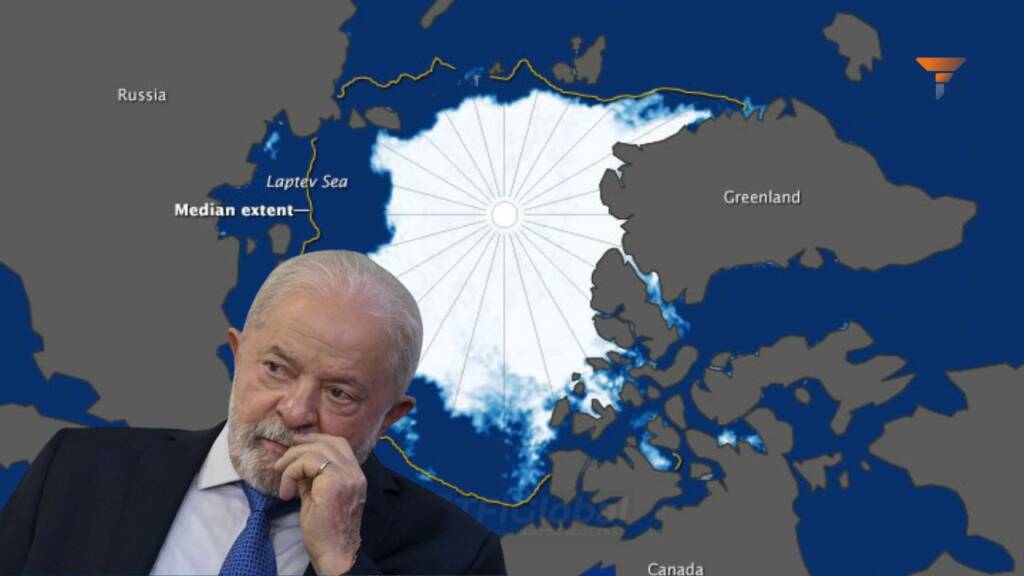Brazil is taking a step towards making history. The country is contemplating the possibility of being the first from the southern hemisphere to enter the Arctic. To do so, Brazil may sign the Svalbard Treaty and seek observer status with the Arctic Council.
The Foreign Ministry in Brazil has decided to revive the 2010 debate, focusing on two particular issues. The first is whether Brazil should accede to the Svalbard Treaty, and the second is whether it should apply for observer status at the Arctic Council.
Why is Brazil eyeing Arctic?
The Arctic is perceived as a faraway place for the average Brazilian. Brazil’s capital, Brasilia is almost about 7,000 miles away from the North Pole. However, Brazil has consistently expressed interest in the Arctic region throughout the 21st century.
Stein-Gunnar Bondevik, CEO of Innovation Norway in South America, confirms this to High North News.
“It is generally acknowledged that most big nations with a bit of self-respect look to the Arctic, and that the most keen ones have placed themselves firmly in the observer chairs of the Arctic Council.”
However, a common feature among them is that they belong in the northern hemisphere, he says, but emphasizes, “True, the process is in an early stage yet, however, it is nevertheless clear that the Brazilian MFA has initiated a process to consider the country’s role in the larger international Arctic cooperation.”
Now, although including Brazil as an observer in Arctic dialogue for such as the Arctic Council may seem a bit superfluous, however this can be a game changer for both Brazil and the West.
What is the Arctic Council?
The Arctic Council is an intergovernmental organization for cooperation on issues related to challenges faced by the Arctic states. The purpose of the organization is to promote sustainable development with regards to environment, social conditions and economy.
Only states with territory in the Arctic can be members of the council. Currently it has eight countries and they are Canada, Denmark, Finland, Iceland, Norway, Russia, Sweden and the USA.
Apart from the member states, it also has “Observer states” and this status is open to non-Arctic states. The debate around Brazil, a non-arctic state, as an observer in the Arctic Council isn’t new.
Read More: US’ history of bombing pipelines: Now it’s the Nord Stream, back then it was Nicaragua
Why Brazil as an observer in the Arctic Council is a game changer?
Brazil as an observer in the Arctic Council can help the country in many ways.
Firstly, Brazil has been economically involved in the Arctic by exporting deep-water oil and gas extraction equipment to Arctic states. It also considers furthering involvement in the Arctic as the necessary next step to the development of its own oil and gas industry.
Secondly, new technologies currently being employed in the Arctic in sectors such as communications, emergency preparedness, and satellite monitoring, could also be implemented in Brazil’s Amazon and exclusive economic zone which is called by many “The Blue Amazon”.
Moreover, it’s not just Brazil that stands to gain from this. It too has a few things to offer to the Arctic.
The inclusion of Brazil in the Arctic Council would mean a higher level of dialogue between representatives of the two regions of major importance to the world – the Arctic and the Amazon Rainforest, which are extremely vulnerable to climate change. This would definitely help expand conservation efforts.
Read More: Nicaragua sends the traitors back home: US
Furthermore, Brazil does have a long history of peaceful research activities in polar zones due to its Antarctic Program, which could be brought up to the Arctic fold.
Apart from that, the nation has been seen as a big proponent of multipolarity on the world stage, which includes supporting south-south relations through groups such as the BRICS. Brazil’s relations with Russia, China or the West remained largely unchanged after the invasion of Ukraine in February of 2022. It could also act as a bridge to re-establish dialogue between Russia and the West.
Thus, Brazil’s inclusion in the Arctic Council actually can actually be mutually beneficial. Its inclusion in the Council could also turn out to be a game-changer for the developing world, particularly the South American region.
